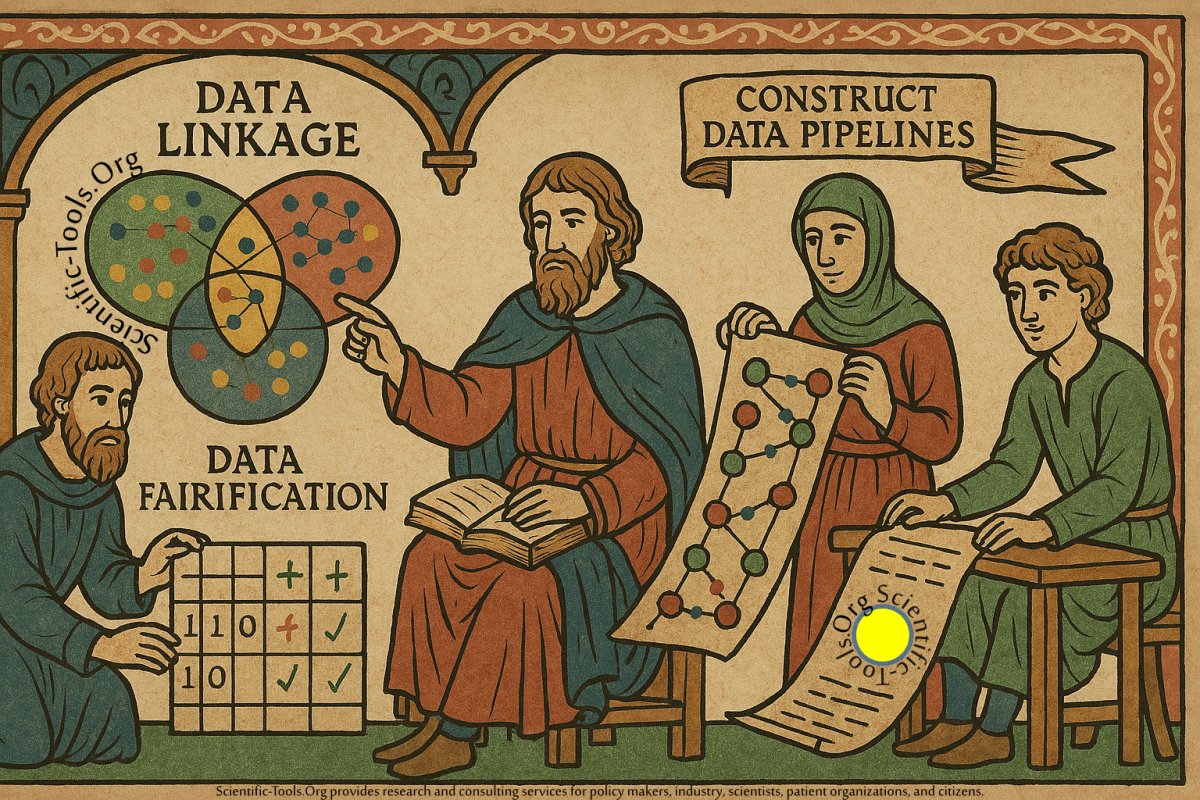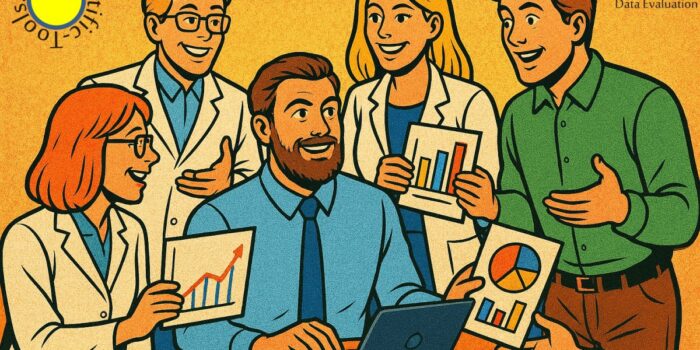In today’s digital landscape, the way research is communicated can be just as critical as…
In complex research and healthcare environments, data rarely comes clean or complete. Instead, it’s often scattered across systems, misaligned in structure, and inconsistent in meaning. At Scientific-Tools.Org, we specialize in bridging that gap. We help research teams and health institutions discover, access, and connect their data in meaningful, structured, and interoperable ways — the foundation of any impactful analysis or evidence generation.
Data Linkage — Turning Silos into Systems
We enable reliable integration of disparate datasets, whether from hospitals, national health systems, research cohorts, or international consortia. Using deterministic and probabilistic methods, custom algorithms, and ontology-driven matching, we ensure that data collected in different contexts can be linked securely and accurately — even when sources vary in format or fidelity.
This approach has been critical in our work supporting national health information systems and patient registries, such as the development of treatment, hospitalization and mortality registries. Among other projects, we have merged real-world datasets covering over 10 million individuals across two decades — establishing a robust foundation for large-scale epidemiological and health systems research.

Data Discovery — Finding What You Didn’t Know You Had
Finding high-quality data — whether public, institutional, or proprietary — is a skill in itself. We perform targeted, high-yield data searches to identify sources that are reliable, relevant, and usable for your study needs. Through systematic bibliographic searches and in-depth knowledge of national and international data repositories, we uncover resources that can elevate your analysis or support your decision-making.
This process played a central role in several projects, including an interactive data visualization that received a prestigious European Union Datathon award and used open Eurostat data to facilitate health care planning for visual impairment.
Data Pipelines — Automating Trustworthy Workflows
We don’t just clean your data — we build automated pipelines that ensure the same steps are performed every time, with transparency and reproducibility. Our pipelines support long-term registry reporting, clinical data ingestion, and multi-center study harmonization.
Using reproducible R-based workflows, we’ve built custom ETL (Extract, Transform, Load) tools for registries with data from over 300 facilities, representing more than 40,000 patients annually. These pipelines are not only scalable, but also FAIR-aligned — designed to make data Findable, Accessible, Interoperable, and Reusable.
Data Processing & FAIRification — From Raw to Ready
We bring raw data into shape through intelligent cleaning, harmonization, and FAIRification: mapping variables to internationally recognized clinical ontologies and classifications like ICD-9, ICD-10, SNOMED CT, LOINC, OrphaNet, OMIM, HPO, and more.
This standardization is essential when integrating data across borders or submitting evidence to regulatory bodies. We’ve applied these methods in clinical research and epidemiology, including contributions to the Global Burden of Disease Study and multiple EU-funded projects, where data clarity and interoperability are paramount.
Let’s Connect
Whether you’re managing a multi-site registry, preparing a large grant, cleaning messy EHR exports, or building the infrastructure for long-term research — we can help. With decades of experience in health data integration, scientific software development, and high-impact research, we provide not just technical solutions, but domain-aware intelligence to make your data work for you. Contact us via our web form, LinkedIn, or email to discuss how we can support your goals.




Comments (0)